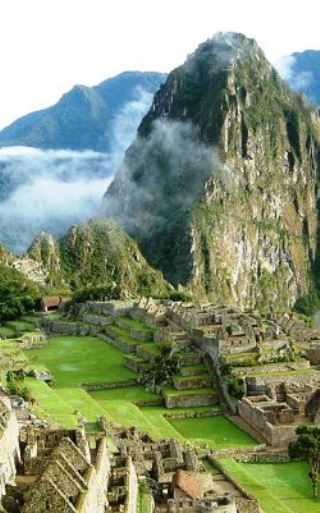If you want to hear the mountains,
do exactly as I say.
There are rules to things like this.
And I tell you that many
have come this way more than once
and have not heard them yet.
Listen:
You must leave Lima early.
The flight at five will get you there by six,
before the morning fog wraps Cuzco thick.
When that first crest of snowcaps rises
you’ll feel the thinness of your breath.
A quiet ache will settle in the chest.
Do not stop for Indian trinkets.
Drink the coca tea and then go straight to bed.
At four you rise to start again,
this time by train.
But do not think that you are almost there.
The ride will take six hours:
switchbacks laced with waterfalls
and clustered sheep. Sit on the left
to see the Indians wrapped in layered rainbows,
black bowler hats and braids,
spinning llama yarn outside their homes,
the wisdom of their people lost
except when kings return in dreams
and speak about the stones.
At the base of Machu Pichu
there will be five hundred tourists
bursting from the train
like subway riders.
Step aside. Let them push.
Look up to the right
and see the cavern homes where mothers nursed,
and children scattered ants for play.
Listen to the river rushing madly to you;
listen to the rising of your own breath.
There are no other sounds.
There are no birds. No chatter here.
When you can feel the pulse beneath your feet,
then start the climb, the way you must, on foot.
You are the silent stranger coming to this time.
And all the mountains are waiting.
Through a thousand years of solitude,
they have all been pressing toward this moment
of your coming, of your coming.
Selection from GOOD-BYE TO WHITE KNIGHTS and other moving vehicles.
Photo: “Macchu Picchu, a UNESCO World Heritage Site near Cusco in Peru, at sunrise” by Allard Schmidt, 2005.
